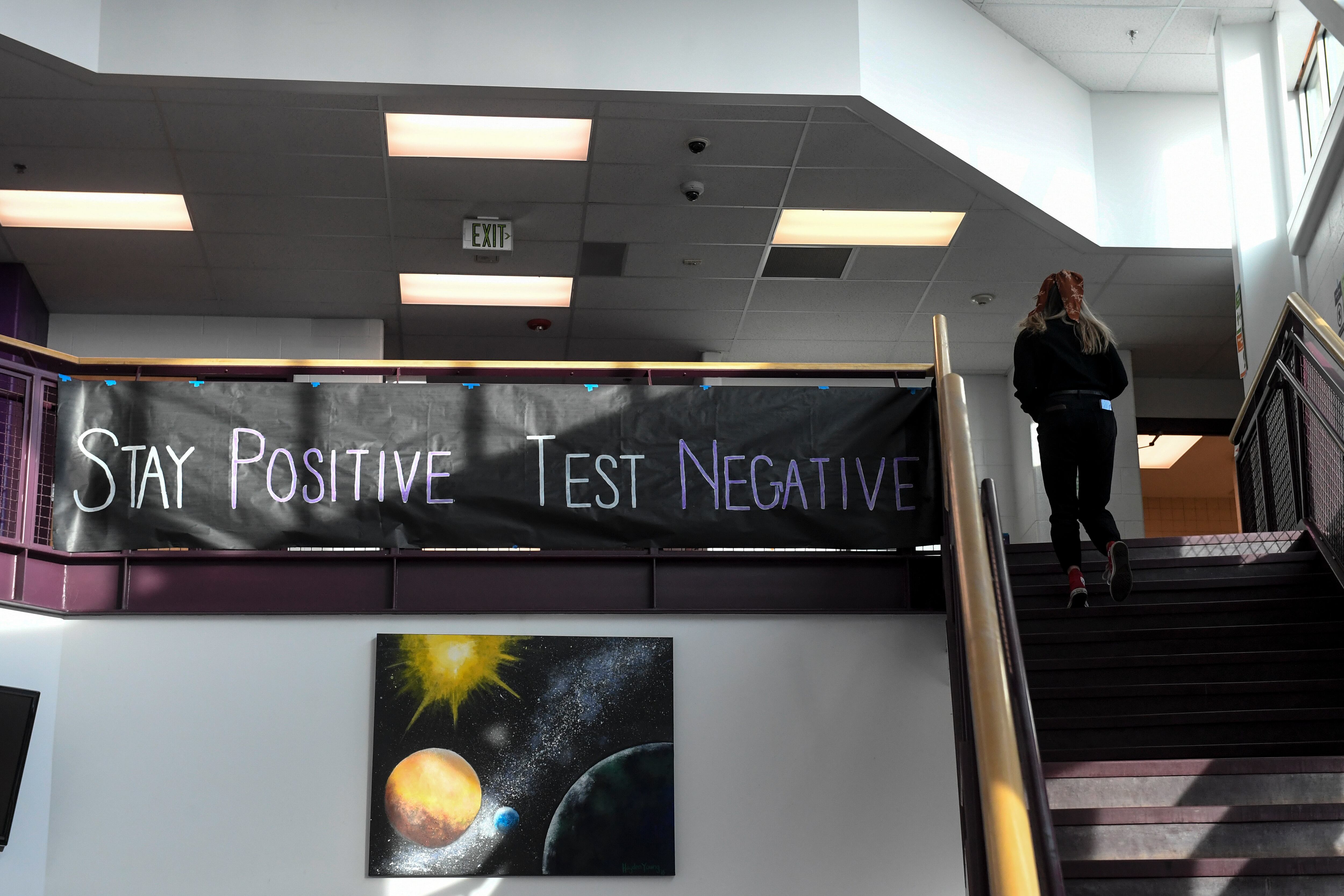Colorado schools may allow students and teachers who have been exposed to COVID to stay in the classroom so long as they remain healthy and continue to test negative for the disease.
State public health officials announced the “test to stay” program Tuesday after Colorado schools weathered a brutal month of staff shortages, student absences, and high rates of illness associated with the omicron variant. It ultimately will be up to school officials whether they want to participate in the program or continue to ask close contacts to quarantine.
Under Colorado’s system of local control, the state gives broad discretion to local public health departments and school districts. Some districts stick closely to state quarantine guidance, while others have taken a much more relaxed approach or dispensed with contact tracing and quarantine altogether.
Colorado’s quarantine rules call for students and staff to stay home after an exposure at school, though people who are vaccinated do not have to quarantine. In many circumstances, people who are masked at school can also avoid quarantine.
New guidance in early January shortened the quarantine period from 10 days to five for both people who tested positive and for close contacts.
The test-to-stay program provides another way to avoid quarantine. People who are close contacts of someone who tests positive in a school setting may keep coming to school as long as they have no symptoms and test negative right after learning about an exposure and again five to seven days after exposure. They would have to wear a well-fitted mask at school for 10 days after exposure, regardless of their school or district mask policy.
Anyone who develops symptoms after exposure would still need to isolate at home, public health officials said.
At their discretion, school administrators can offer the test-to-stay option to students and staff who were exposed in the community, but not to people who live with someone who tested positive. People with a household exposure should stay home from school.
Students and school staff who are fully vaccinated continue to be exempt from quarantine. Fully vaccinated — or up-to-date on vaccinations — now means having three shots for anyone 12 and older. For younger children, it means having completed the initial two-dose sequence.
The federal Centers for Disease Control and Prevention endorsed the test-to-stay approach in December after researchers found it didn’t seem to increase rates of COVID transmission in schools that were already using it. The schools studied by researchers required masks. Colorado schools have a wide range of mask policies, and a number of districts are dropping their mask requirements.
Colorado will provide rapid tests for free to participating schools. Public, charter, private, and tribal schools are all eligible to participate. District-run schools need to notify their superintendent, but they don’t need district approval to participate. Independent preschools and child care center are not eligible, state officials said.
The test-to-stay program is separate from Colorado’s other school COVID testing program, which provides free rapid tests to schools for weekly screening of students and staff. That program has seen limited participation, and some schools have reported logistical and supply problems. Schools don’t need to participate in the screening program to participate in the test-to-stay program, and schools in the screening program need to sign up separately for the test-to-stay program.
Schools that want to participate in the test-to-stay program will need to collect and maintain parent consent for testing and sign an agreement that includes consent to share data with public health officials.
Find more information about the program here.





